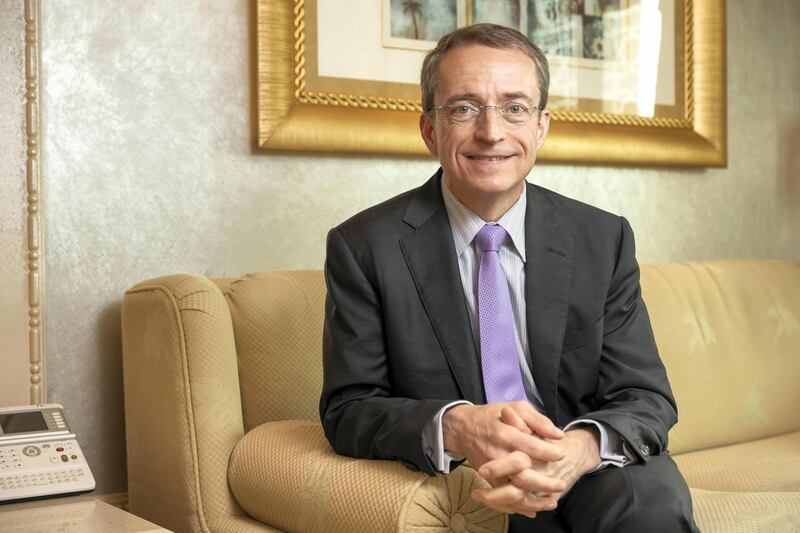VMware, the software company whose future is being evaluated for the second time in three years by parent Dell Technologies, expects its Middle East business to grow ahead of mature European markets as the region embraces digitisation.
Sales in Middle East, Turkey and North Africa will outpace growth in established markets in Europe this year, led by Saudi Arabia and the UAE, Pat Gelsinger, chief executive of VMware, told The National during a visit to Abu Dhabi.
“The region is growing very rapidly for us and now rivalling some of our larger markets in Europe in terms of size,” Mr Gelsinger said. “The METNA team wants to pass the France team, the Germany team, the UK team.”
In March, Palo Alto, California-based VMware said global sales will continue to grow despite uncertainty and competitive pressures. Its parent company Dell, which owns 82 per cent of VMware, is looking for ways to go public again and is considering a business combination with VMware as part of those options. Mr Gelsinger declined to comment on how soon Dell would make a decision or the most likely outcome of its deal deliberations.
Mr Gelsinger said the company is “looking forward” to the end of the process in which Dell will make a decision about how to streamline the multicompany tech empire because “there’s a bit of uncertainty” surrounding the outcome.
“There are lots of things that fit under the view of business combination. We would continue to emphasise the value of a distinct software company,” he said. “We would expect that any form here would be motivated to maintain that kind of innovative, independent ecosystem.”
Mr Gelsinger said he’s not worried about continued investor confidence in the company because it is maintaining “good dialogue” with its investors.
“Of course they do want to know what the conclusions are and they do want to understand the go-forward implications, so as long as that’s done well, no I am not concerned,” he said.
The Dell maneuver is a “walk in the park” compared to an earlier and more complicated process during its 2016 acquisition of EMC Corp, which had owned a controlling stake in VMware, he said.
“In comparison this is a modest period of time compared to that transition,” he said, adding that VMware emerged stronger from the last transaction.
_______________
Read more:
[ Businesses not ready for digital transformation, Dell says ]
[ PC deliveries hold their ground in first quarter ]
_______________
VMware’s total sales in the fourth quarter rose 14 per cent to $2.31 billion, it said in a statement in March.
The METNA region is a “very substantive” part of VMware’s global sales, Mr Gelsinger said, declining to provide a breakdown of revenue.
VMware, which has grown to more than 170 employees in the Middle East since it began regional operations in 2008, has a mix of corporate and government clients. Among its customers are Saudi Arabia's Ministry of Municipal and Rural Affairs, state-owned Kuwait National Petroleum Company and Lebanon's Al-Mawarid Bank.
The Middle East, one of the most vulnerable regions to cyber attacks, is increasingly embracing digitisation, automation and Artifical Intelligence that are revolutionising industrial operations across sectors. Businesses are focused on innovating while preparing for the inevitable breaches that technology brings.
The so-called digital transformation in the region translates into “more business” for VMware as companies seek out strategic tech partnerships, transfer of knowledge and tech investments, Mr Gelsinger said.







